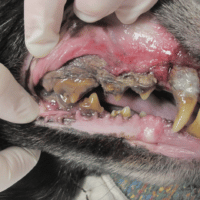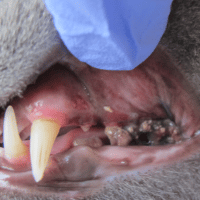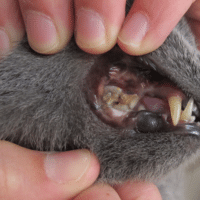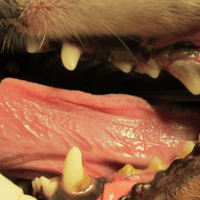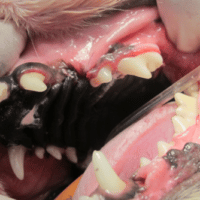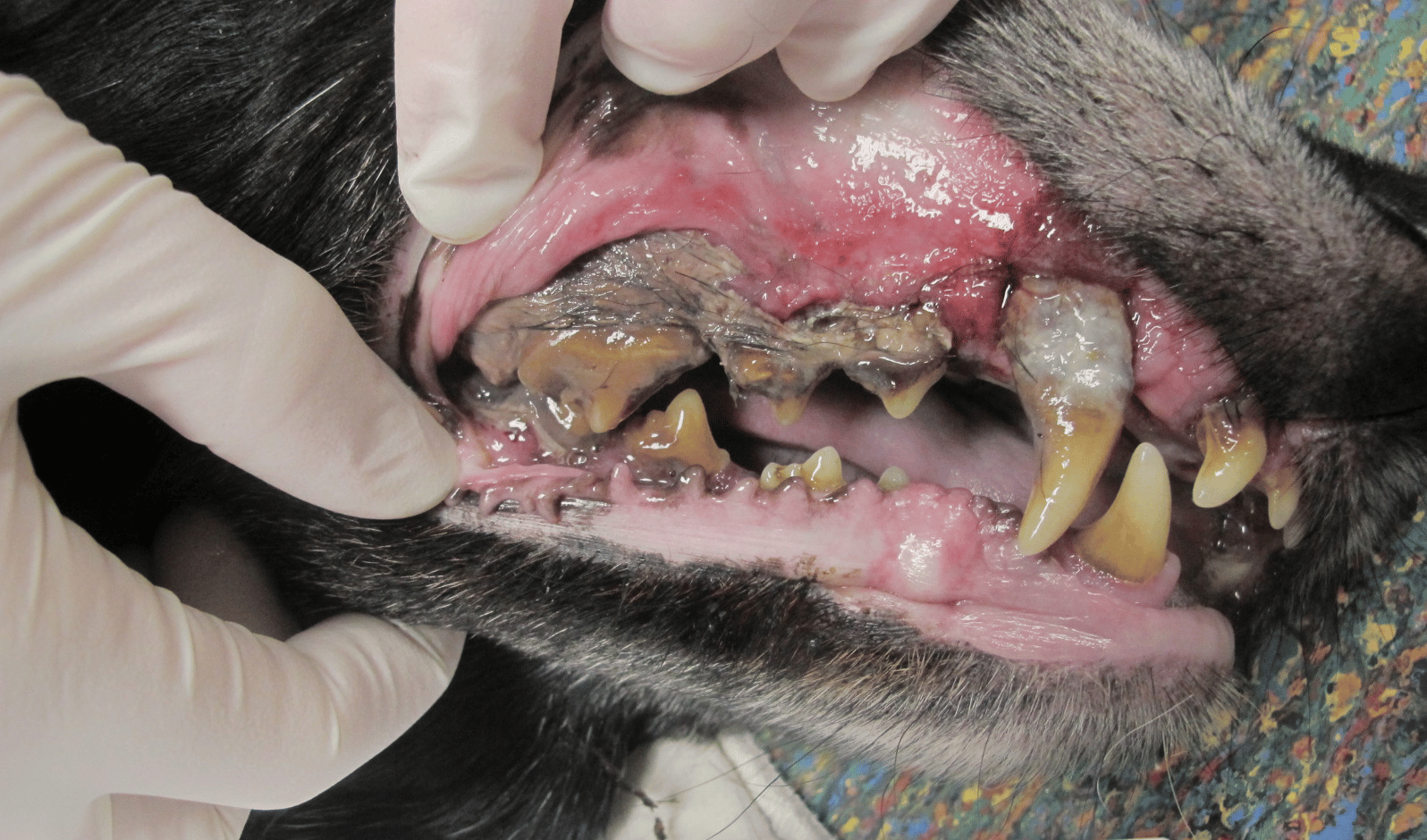
Dental care is critical to your pet's health

Dental care is critical to your pet’s health
An animal’s mouth is not much different than a person’s; they require upkeep to prevent problems from occurring further down the road. The Investigations/Emergency Response (I/ER) team often attend calls of concern that involve dental problems, and many times the owners are not aware of what is going on in their pets’ mouth. Animals tend to act stoic and try not to show that they’re in pain, so it’s up to the owner to make sure that they are staying on top of their pet’s wellbeing.
A healthy mouth should be free of odor, have healthy white teeth and pink gums. If you notice that your cat or dog has bad breath, red gums, is excessively drooling or having issues chewing food, or has a lump in the mouth then it may be a sign of an underlying dental concern. While some pets are more at risk for dental issues, (such as smaller breeds of dogs), all animals should have their teeth annually checked. Brushing your pet’s teeth at home is beneficial, but an annual check by your veterinarian will ensure that any concerns are caught before they become a major issue.
If left unchecked, dental issues can turn into much more significant health problems – gum recession, loss of teeth, weakening of the jaw bone which could lead to fractures, a hole (called a fistula) can develop between the oral cavity and nasal passages causing nasal discharge, or a bone infection can occur. Bacteria from the mouth associated with dental issues can even enter the bloodstream and can damage the heart, liver and kidneys. A broken tooth that has pulp exposed could potentially lead to a painful tooth root abscess. Make sure you monitor your pet if they are given any hard chew toys (like bones or antlers), as it’s not uncommon for dogs to break a tooth on these types of toys.
Here are some before and after photos that will show how much of a difference a simple dental can cause. Having the tartar removed and extracting the teeth that cannot be salvaged can vastly improve an animal’s health. This dog is just one of many who come into the care of our shelter who received a much-needed dental, thanks to our clinic staff. We’ve also included a photo of a dog’s teeth and a cat’s teeth to show what can occur if dental concerns are not taken care of – it doesn’t take long for dental disease to advance! Talk to your local vet to find out the best way to prevent dental disease in your critter.
For the month of March 2019, the I/ER team attended 107 animal welfare concerns, 42 animal related emergencies and 36 jobs for a variety of other tasks.
For Animal Emergencies within the City of Winnipeg call 204-982-2020
To report an Animal Welfare Concern within the City of Winnipeg call 204-982-2028
To report an Animal Welfare Concern outside of Winnipeg call the Animal Care Line at 204-945-8000 or toll free 1-888-945-8001
To report Winnipeg Bylaw concerns (dogs running at large, barking complaints) contact 311


